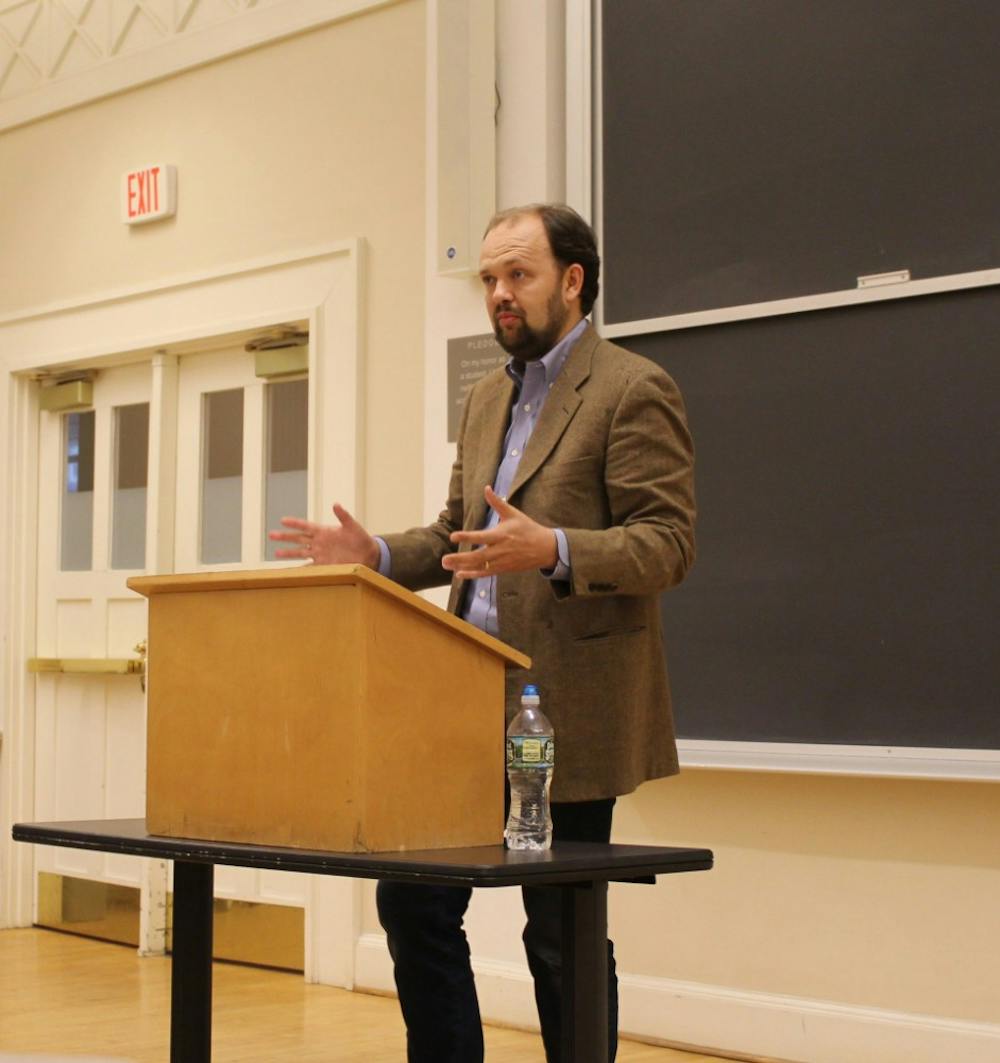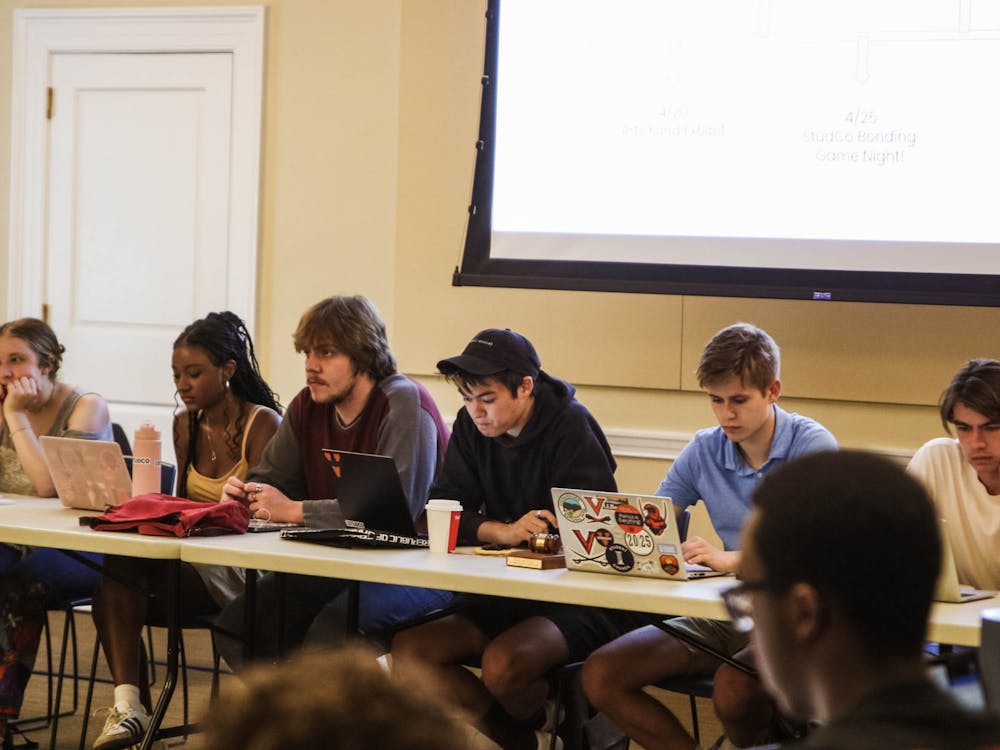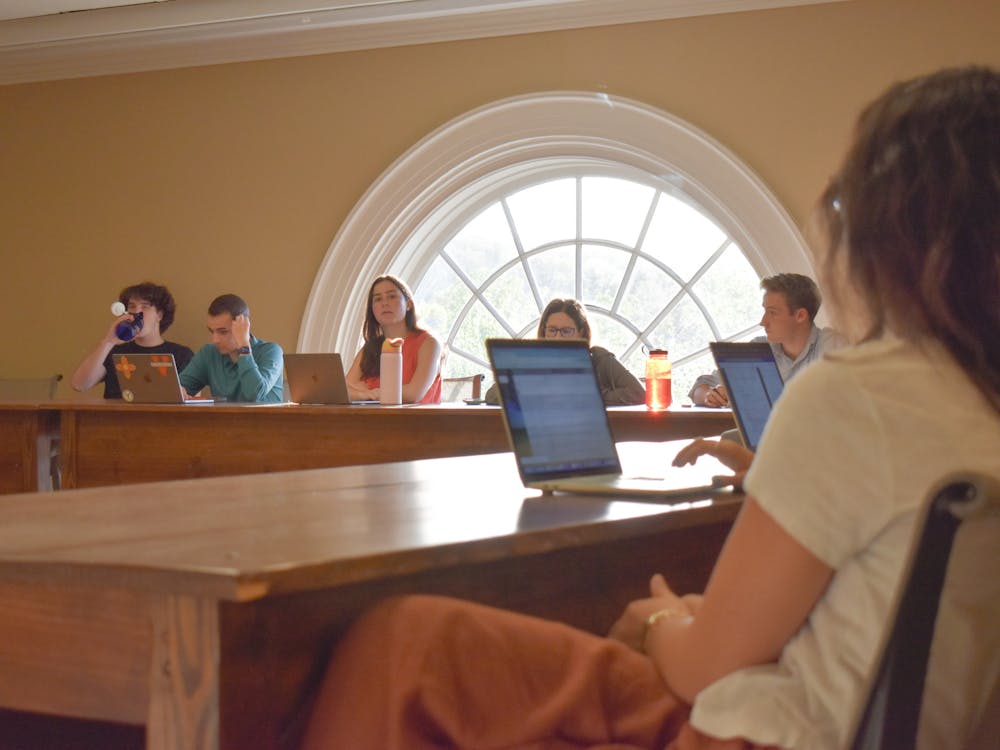The youngest columnist to ever be hired to write for the New York Times, Ross Douthat, delivered a lecture in Minor Hall Monday and spoke about how low fertility rates in the Western world can contribute to economic and cultural unrest.
Director of the National Marriage Project Brad Wilcox hosted Douthat’s lecture, which was entitled, "Other People's Babies: The Unhappy Politics of Low Fertility.” A crowd of roughly 50 students and community members were in attendance.
Douthat began by pointing out the low fertility rates in the West and said Western women aren’t having enough children in order to replace current population numbers. He cited high child survival rates as something which reduces incentives to have big families as well as the shift from agrarian to industrial economies, which takes away the necessity of having children to help around the house.
Douthat said one result of low fertility rates is an economic stagnation.
“Low replacement birthrates turn rich societies into aging societies, with fewer workers and more retirees,” Douthat said.
Douthat said studies show older populations tend to be less dynamic and more risk-averse than societies with younger demographics. Douthat cites this as one reason for stagnant wages, slow economic growth and disappointing technological progress outside of information technology.
Douthat mentioned that in the U.S. and Europe, one way of dealing with low fertility rates has been through allowing larger-scale immigration. This, he noted, has its own consequences on certain Western populations.
“[Immigration] delivers the promise of a more dynamic future, potentially,” Douthat said. “But for natives who are aging and these communities aren’t thriving, it also suggests that the benefits of that imagined future belong to people who seem culturally alienated, to inheritors who aren’t your natural heirs, to other people’s children and grandchildren rather than the dwindling numbers of your own.”
The name of Douthat’s talk is a reference to Congressman Steve King’s controversial tweet published March 12 where he referenced a Dutch politician and said “We can’t restore our civilization with someone else’s babies.”
Douthat said he felt this tweet was bigoted but pointed to a larger cultural feeling of anxiety in some parts of the West about increased immigration.
“The conclusion of the talk is basically that this anxiety could push Western society, and especially maybe European societies, towards deeper political crisis, more sort of populism, more tensions between immigrants and so on,” Douthat said.
Douthat offered possible solutions to this anxiety and division, one of them being encouraging native-born Westerners to have more children.
“Had older generations of the Brexit-voting British and the Trump-voting Americans had more children in every family, then they would enjoy a larger economy, better growth prospects, less inequality, more of a community around them in their old age,” Douthat said.
Douthat said higher fertility rates in native-born Westerners will also likely lead to a more welcoming culture towards immigrants.
“The West would need immigrants less, but find it easier to welcome them, since the prospect of assimilating migrants and refugees might look like less of a challenge to the country’s core identity,” Douthat said.
Vijay Menon, a fourth-year College student, attended the lecture and had read Douthat’s articles before he saw him speak at the University. He said he thought the talk was informative, but had some doubts about Douthat’s solutions.
“The one thing I am skeptical over is the ability of government policy to effectively promote child-rearing,” Menon said.
Menon said the biggest thing he took away from the event was an emphasis on family.
“Family is important, and it goes beyond your own family,” Menon said. “It can have important consequences for culture, politics and the way we interact with each other.”





